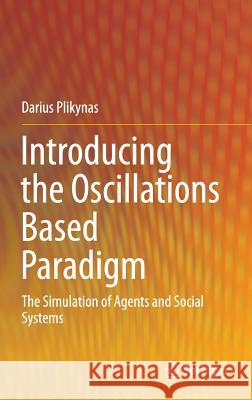Introducing the Oscillations Based Paradigm: The Simulation of Agents and Social Systems » książka
Introducing the Oscillations Based Paradigm: The Simulation of Agents and Social Systems
ISBN-13: 9783319390390 / Angielski / Twarda / 2016 / 325 str.
The book presents a conceptually novel oscillations based paradigm, the Oscillation-Based Multi-Agent System (OSIMAS), aimed at the modelling of agents and their systems as coherent, stylized, neurodynamic processes. This paradigm links emerging research domains via coherent neurodynamic oscillation based representations of the individual human mind and society (as a coherent collective mind) states. Thus, this multidisciplinary paradigm delivers an empirical and simulation research framework that provides a new way of modelling the complex dynamics of individual and collective mind states.
This book addresses a conceptual problem the lack of a multidisciplinary, connecting paradigm, which could link fragmented research in the fields of neuroscience, artificial intelligence (AI), multi-agent system (MAS) and the social network domains. The need for a common multidisciplinary research framework essentially arises because these fields share a common object of investigation and simulation, i.e., individual and collective human behavior. Although the fields of research mentioned above all approach this from different perspectives, their common object of investigation unites them. By putting the various pathways of research as they are interrelated into perspective, this book provides a philosophical underpinning, experimental background and modelling tools that the author anticipates will reveal new frontiers in multidisciplinary research.
Fundamental investigation of the implicit oscillatory nature of agents mind states and social mediums in general can reveal some new ways of understanding the periodic and nonperiodic fluctuations taking place in real life. For example, via agent states-related diffusion properties, we could investigate complex economic phenomena like the spread of stock market crashes, currency crises, speculative oscillations (bubbles and crashes), social unrest, recessionary effects, sovereign defaults, etc. All these effects are closely associated with social fragility, which follows and is affected by cycles such as production, political, business and financial. Thus, the multidisciplinary OSIMAS paradigm can yield new knowledge and research perspectives, allowing for a better understanding of social agents and their social organization principles.
"











